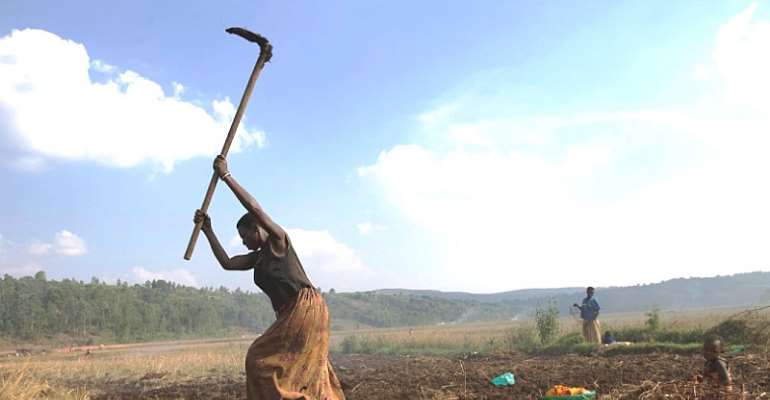Helping the Burundian People Cope with the Economic Crisis

What’s happening? In the wake of the political and security crisis ongoing in Burundi since 2015, the economy has suffered a sharp decline. The economic and social progress achieved since the end of the civil war in the 2000s risks being swept away. Burundians’ living conditions and access to services are deteriorating.
Why does it matter? Worsening unemployment and poverty increase the likelihood of instability and exacerbate the risk of violence, while the “yes” vote in Burundi’s 17 May 2018 constitutional referendum could lead to the demise of Hutu-Tutsi power-sharing agreements in public institutions.
What should be done? The European Union and its member states, who suspended direct aid to the government, should step up their assistance to the population, including by strengthening the capabilities of their partners in the non-governmental sector, while minimising risks that external aid aggravates local conflict dynamics.
Executive Summary
If the “yes” vote in Burundi’s 17 May 2018 constitutional referendum has deepened the country’s political and security crisis, its economic woes also increase risks of violence. With an economy in recession since 2015, Burundians’ living conditions and access to services are deteriorating. Worsening unemployment and poverty, combined with the potential demise of power sharing between Hutu and Tutsi in public institutions, make instability in the medium to long term likely. The European Union (EU) and its member states, who have suspended direct aid to the government, should nonetheless step up their support to Burundi’s people by increasing aid for basic services, strengthening the non-governmental organisations (NGOs) through which they channel aid, while doing everything possible to ensure that their aid does not aggravate conflict dynamics, especially at the local level.
With donor support, Burundi had been making modest economic and social progress since the end of the civil war in the 2000s. But its current economic woes cast a shadow over this progress. The annual growth rate has fallen from an average of 4.2 per cent between 2004 and 2014 to −3.9 per cent in 2015 and −0.6 per cent in 2016. People across society are paying the price. Farmers and traders are struggling because internal demand for their products has declined; civil servants’ purchasing power has fallen; and shopkeepers report giving ever more customers credit. Many Burundians must find a second job, indulge in petty corruption or eliminate non-essential spending to survive. A decade of progress in health and education has been swept away. Many doctors have left the country. Teachers are often paid in arrears. University education is under threat as student grants are cut.
Following consultations under Article 96 of the Cotonou Agreement, which provides for the suspension or change in terms of EU aid if one of the parties does not respect human rights, democratic principles and the rule of law, the EU and its member states – until then Burundi’s main donors – withdrew direct budgetary support in 2016. They also redirected aid from Burundian ministries to international NGOs, UN agencies and member states’ development arms. Some European donors now work directly with local NGOs or plan to do so, though many of the latter have limited capacity and are under close government scrutiny. In early 2018, the EU decided to reduce its overall aid to Burundi, though basic sectors (including health, education and access to water) still receive funds.
The government blames speculators and donors for its own economic mismanagement and is clamping down on signs of protest.
In contrast, the World Bank and the African Development Bank continue to provide budgetary support and work with ministries. The Burundian government has established new partnerships with China, Turkey and Russia. But these countries’ aid remains largely symbolic, does not aim to strengthen government capacities and has limited impact on the population.
The government blames speculators and donors for its own economic mismanagement and is clamping down on signs of protest. Desperate to increase state revenue, it has introduced new taxes and obligatory public “contributions”, forcing civil servants and ordinary Burundians to donate extra money to state coffers. Under government pressure, banks that are partly state owned have made loans to the government, putting their solvency at risk. With no resolution of the country’s political crisis in sight, the population is slipping deeper into poverty. The gloomy prospects for development, collapse of social services, rising unemployment and deepening repression have pushed many young Burundians into exile.
Burundi’s European partners have only limited room for manoeuvre. In 2019 or 2020, they will adopt new five- or ten-year aid programs. Even while budgetary support remains suspended, European donors should increase aid for the population. It is vital to minimise risks that the provision of external assistance, which may be coveted by many Burundian actors (including the population, the authorities and NGOs), exacerbate conflict dynamics at the local level. If they plan to channel aid through local NGOs, European donors should help those organisations build the capacity to manage funds in a tense security and political environment. This could include, for instance, measures to increase support for organisations facing government pressure, or diplomatic assistance in cases of authorities’ harassment of NGO employees.
To Read the full Story: https://www.crisisgroup.org/africa/central-africa/burundi/264-soutenir-la-population-burundaise-face-la-crise-economique?utm_source=Sign+Up+to+Crisis+Group%27s+Email+Updates&utm_campaign=c901e9fcb5-EMAIL_CAMPAIGN_2018_08_31_08_51&utm_medium=email&utm_term=0_1dab8c11ea-c901e9fcb5-359938213
